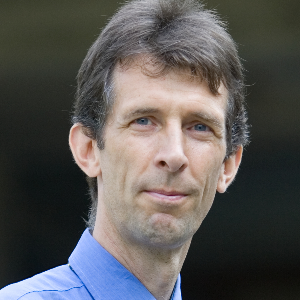Global leaders in healthcare and medicine will meet in Beijing, China, later this month to tackle a pressing question: How do we promote and maintain good health and well-being for a growing global population?
Hosted by the Chinese Academy of Engineering (CAE), the InterAcademy Partnership for Health (IAP for Health) Conference 2016 will take place from 27-28 September at the Beijing Conference Centre. At the conference, global experts in medical research, medical practice, and healthcare systems will discuss best practices, new concepts and the future of healthcare worldwide.
In 2015, world leaders agreed on a set of 17 Sustainable Development Goals (SDGs). In particular, Goal 3 calls for world leaders to “Ensure healthy lives and promote well-being for all at all ages.”
But improving health and healthcare systems is fundamental to achieving many of the other goals. Goal 2, for example, aims for food security and adequate nutrition, while Goal 6 calls for universal access to clean water and sanitation.
Global population currently stands at 7.4 billion, with another 80 million births projected each year. In addition, advances in medical sciences mean that more and more people are living longer – adding stress to many nations’ healthcare systems. Amid these massive challenges, how do we ensure that low- and middle-income countries aren't left behind as we work to guarantee health and well-being for everyone at all ages?
To answer these questions, the IAP for Health conference will bring scholars from China and abroad together for discussions on such topics as:
- the social determinants of health;
- reducing risks across the lifespan;
- communicable diseases, including the prevention, detection and response to threats of emerging infectious diseases and pandemics;
- the role of traditional medicine; and
- new models for promoting health, for example in the urban environment.
A final session will investigate transforming the health sector and how to build capacity in developing, emerging and developed economies.
The opening session will include contributions from Ji Zhou, President of Chinese Academy of Engineering; Detlev Ganten, IAP for Health Co-chair; Bernhard Schwartländer, WHO representative in China; and Marielza Oliveiral, director and UNESCO representative to China.
The event will also provide a platform for the launch the latest IAP for Health Statement, “A call for action to improve the reproducibility of biomedical research”, scheduled for the evening of 27 September.
Eminent international speakers will include Tony Capon, Director of the International Institute for Global Health, United Nations University; Lai Meng Looi, Distinguished Professor, University of Malaya and Co-chair, IAP for Health; Sir George Griffin, Emeritus Professor of Infectious Diseases and Medicine St George’s, University of London, UK; Margaret Hamburg, Foreign Secretary of the US National Academy of Medicine; Oyewale Tomori, President, Nigerian Academy of Science; and Franz Gatzweiler, Executive Director of the ICSU-IAP-UNU programme on ‘Urban Health and Wellbeing: a Systems Approach’, based at the Institute of Urban Environment at the Chinese Academy of Science, Xiamen, China.
Among the eminent speakers from China are Longde Wang, President of the Chinese Preventive Medicine Association; Nanshan Zhong, Director-General, China State Key Laboratory of Respiratory Diseases; and Boli Zhang, President of the China Academy of Chinese Medical Sciences.
"Treating diseases and their symptoms as they come into the clinic is not enough. Policymakers and medical experts must join together in a global endeavour to promote the conditions, behaviours and lifestyles that support good health," says Margaret Hamburg, Foreign Secretary of the US National Academy of Medicine and co-chair of the conference scientific committee. "This will reduce the queues of people who need medical help and ensure more people can receive proper care. It will also reduce healthcare costs. But most importantly, it will help people grow healthy, stay strong, and enjoy longer, happier lives."
"As a nation with an enormous and diverse population, but also one that is rapidly accelerating its investment in medical research, China is on the front-lines of the very issues of promoting health this conference is about," says Depei Liu of the CAE and the other co-chair of the conference scientific committee. “China is willing to closely cooperate with the rest of the world to address the challenges of medical sciences and health promotion."
More information and a full agenda for the conference is available HERE
